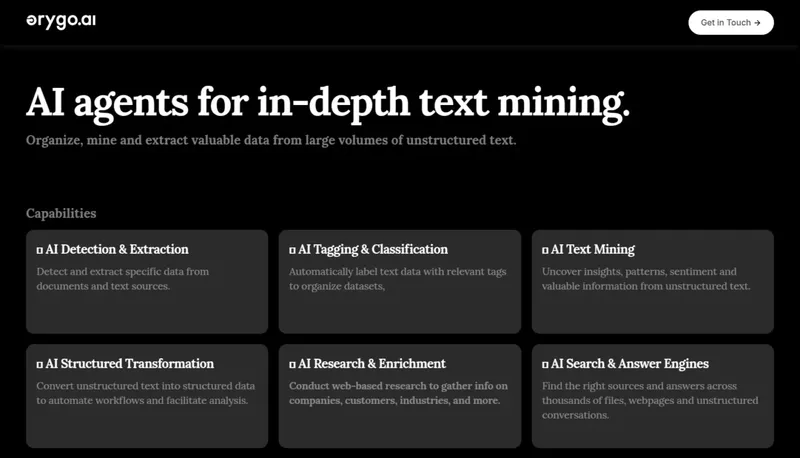Markup Annotation Tool
Transform free-text into structured datasets for AI training

Target Audience
- Data scientists
- Machine learning engineers
- NLP developers
Hashtags
Overview
Markup helps teams quickly convert unstructured text into organized data for machine learning projects. It uses GPT-4 to automate data labeling and annotation tasks that normally require manual work. Essential for creating high-quality training data for natural language processing (NLP) models.
Key Features
GPT-4 Automation
Leverage AI to accelerate text annotation process
Collaborative Labeling
Team workflow management for data projects
Structured Export
Export datasets in ML-ready formats (JSON/CSV)
Pre-built Templates
Jumpstart projects with common NLP task setups
Use Cases
Label training data for AI models
Structure unstructured text documents
Prepare datasets for NLP applications
Collaborate on ML data annotation
Pros & Cons
Pros
- Dramatically reduces manual annotation work
- GPT-4 integration improves labeling accuracy
- Real-time collaboration features
- Direct export for ML pipeline integration
Cons
- Primarily focused on text/NLP use cases
- Requires understanding of ML data structures
- GPT-4 usage may incur additional costs
Frequently Asked Questions
What types of ML projects is Markup best suited for?
Primarily designed for natural language processing (NLP) projects requiring structured text data
Can I export my annotated data?
Yes, datasets can be exported in JSON and CSV formats for ML pipeline integration
Does Markup support team collaboration?
Yes, includes features for real-time collaborative annotation and project management
Reviews for Markup Annotation Tool
Alternatives of Markup Annotation Tool
Automate AI training data preparation with smart quality assurance
Annotate diverse data types for AI model training and validation
Generate diverse training datasets for AI systems
Accelerate AI model training with precision data annotation services
Organize and extract valuable insights from unstructured text data
Convert documents into AI-ready formats with structured data extraction







